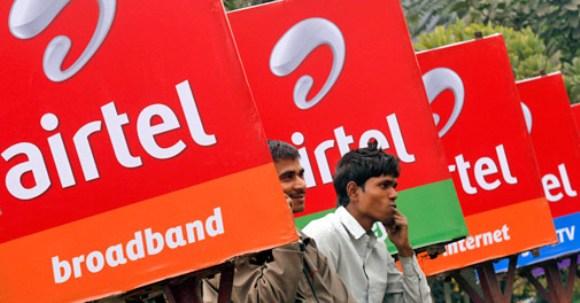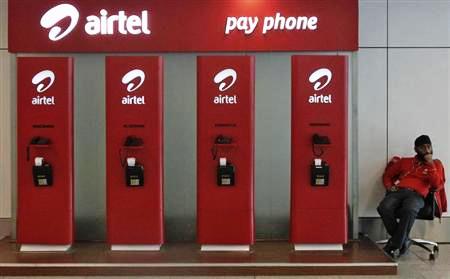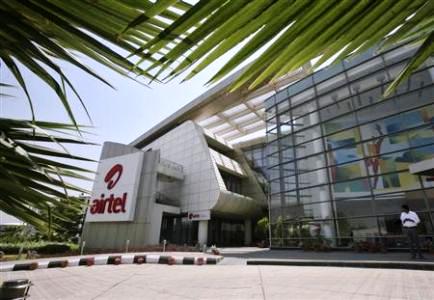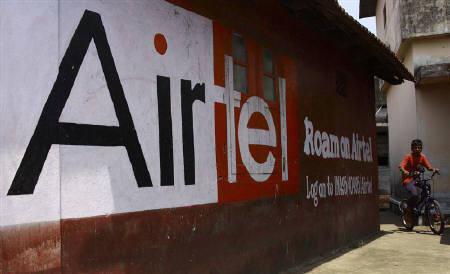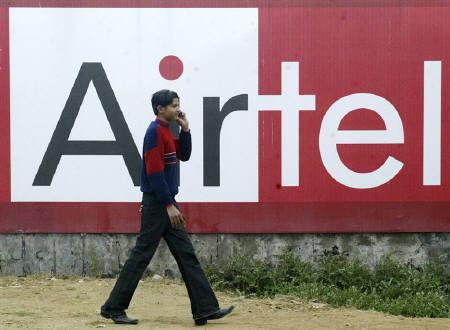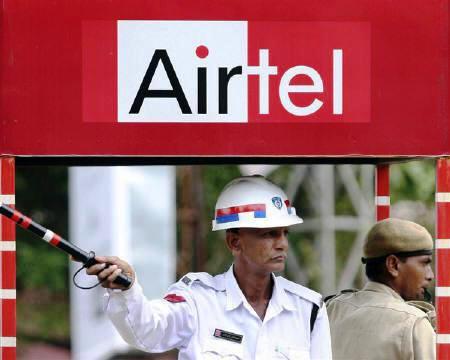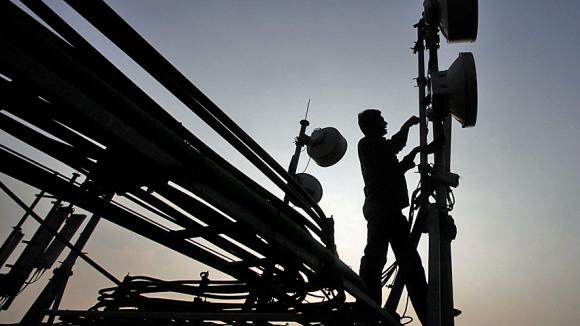 | « Back to article | Print this article |
Brand Airtel: Is there a wake-up call?
Just when Bharti Airtel got itself a consistent branding with instant recall, it lost the architect behind it all -- Bharat Bambawale, the then-brand director for the company -- in March, this year.
Under him, Airtel pushed its 'friendship' plank to connect with the youth across countries.
The success is already showing signs of wear and tear with a recent independent valuation done by Brand Finance, the London-based advisory, stating that Airtel's brand value has slid a few notches.
Click NEXT to read further. . .
Brand Airtel: Is there a wake-up call?
The fourth-largest telecom service operator in the world can not afford a decrease in brand valuation as it consolidates its business in emerging markets, while positioning itself as a global brand.
Airtel's branding issues are complicated as it is a leader brand in India, while in emerging markets such as Africa, it is a challenger brand.
Over the last two years Airtel, has expanded to 19 countries across Asia and Africa with a customer base of 260 million.
Its entry in markets abroad has exposed it to the challenges of establishing a global brand at a time when there is margin pressure back home due to rising input costs.
Click NEXT to read further. . .
Brand Airtel: Is there a wake-up call?
Brand Finance in its 2013 list of the leading 500 global companies in brand value, has captured Airtel's brand value dropping from $5.2 billion in 2012 to $3.7 billion in 2013; its rank has gone down from 187th to 313th in the same period..
Brand Airtel has seen better days: Between 2010 and 2012, its rank in the pecking order on the same list had shown a steady improvement from 287th (in 2010), 283rd (in 2011) to 187th in 2012.
The annual valuation by Brand Finance calculates brand value using the 'Royalty Relief' method which presumes a brand as not being owned by the company but as if it was licensed from another for a royalty.
Click NEXT to read further. . .
Brand Airtel: Is there a wake-up call?
Airtel's brand strength decreased in 2013 over 2012 as the royalty rate went down. Factors such as falling revenues, high discount rates, a drop in short-term forecast revenues, poor long-term growth prospects, or even unfavourable change in tax rates where a brand is present can all drag down its value.
In its analysis, Brand Finance mentions that the risk associated with operating in Africa is considerably higher than in India which has caused a jump in discount rates.

The long-term growth took a hit, largely due to the pessimistic forecast for the Indian economy.
Quoting institutional brokers' estimate system, Brand Finance notes that Bharti Airtel's pre-tax margins have decreased over the last two years, and are not expected to recover in the next three years.
Click NEXT to read further. . .
Brand Airtel: Is there a wake-up call?
Bharti Airtel has seen 12 consecutive quarters of drop in net profit.
These cumulatively caused a net drop in brand value of $1.47billion, from $5.22billion in 2012 to $3.74billion in 2013.
When contacted, Airtel refused to comment on the implications of the Brand Finance report.
Impact on the brand
The jury, comprising the advertising fraternity, brand specialists, and telecom sector analysts, appear divided on the impact of the fall in the brand value on how Airtel is perceived by consumers.
Amandeep Khurana, former chief operating officer, Madison Media Plus, points out, "Any brand valuation exercise is balance-sheet oriented."
Click NEXT to read further. . .
Brand Airtel: Is there a wake-up call?
With the telecom market in a flux, brand valuations can then fluctuate with business performance.
"The unpredictability of business in emerging markets is a given. But Bharti Airtel's management had not given it adequate weightage," says an analyst with a Mumbai-based broking firm.
Telecom analysts say they don't take into account changes in brand value while making recommendations on the stock.
However, as Ravi Rao, leader (South Asia), Mindshare, notes, "Currently there is no effect on Airtel's brand perception for the man on the street.
Click NEXT to read further. . .
Brand Airtel: Is there a wake-up call?
"But if negative news continue, perceptions can change very fast."
Marketing professionals feel that any successful brand has to be backed by addressing the issues in customer-servicing.
Lloyd Mathias, founder-director, GreenBean Ventures, who has been in the senior management at telecom companies such as Tata Teleservices and Motorola India, says the current regulatory logjam has stalled innovations in the last two-three years: "At the time when consumer expectations were raised by the launch of services like 3G, the servicing failed to create an impact in people's lives".
This creates customer discontent.
Click NEXT to read further. . .
Brand Airtel: Is there a wake-up call?
Santosh Sood, professor of marketing at Fortune Institute of International Business, who had earlier worked closely on Airtel during his stint with the advertising industry, points to the changing rules of engagement for telecom operators: "It is no longer about selling a connection but an experience which is a combination of service, data, quality of network, region-specific tariff packages, applications, music, and social media".
The branding so far
Airtel's communication seems to be on the right track.
It has found a sweet spot in the friendship theme, on which rides several of its recent advertising campaigns -- 'Har friend zaroori' and 'Jo mera hain wo tera hai'.
Click NEXT to read further. . .
Brand Airtel: Is there a wake-up call?
In November, last year, the 'friendship' bandwagon rolled into Africa with a campaign around a young Nigerian singer, Half Dollar.
The brand has also homed in on youth-centric events like cricket, soccer and Formula One racing for visibility.
Ravi Kiran, ex-CEO (SouthAsia) of Starcom MediaVest Group, who now runs a venture fund, feels Airtel's youth connect with its friendship campaigns is something the brand lacked before 2010 and that "should keep on being refreshed".
According to telecom analysts, growth of telecom services will be linked to the use of data, and the youth are the biggest drivers of data consumption and sharing.
Click NEXT to read further. . .
Brand Airtel: Is there a wake-up call?
"Communication for the youth also has an appeal across markets.
"So, they can build on the friendship theme across markets," points out Rohit Ohri, chairman, Dentsu India.
Brand experts say that any brand-building exercise takes upto three years to accrue benefits to the company as customers look for consistency in brand experience and benefits from a brand association.
This year will be the year of reckoning for Brand Airtel's friendship drive then.
Eventually, it will have to be wary of what Harish Bijoor Consults Inc CEO Harish Bijoor warns: "The classic problem that many telecom brands face when they become too big is not being specific to anyone."
It will be over to Airtel's newly-appointed India-CEO Gopal Vittal to take it forward from here.
